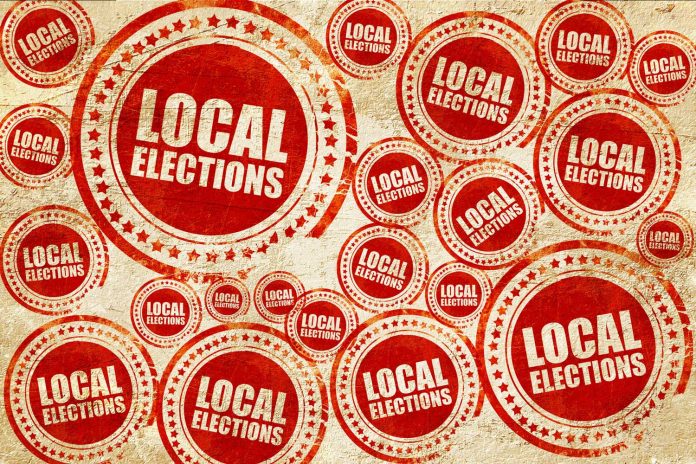I spent part of my weekend attending a 2019 election post-mortem where a group of committed volunteers, activists, candidates and elected officials went over what went right and what went not-so-right in 2019.
Some of you might be thinking, “There was an election in 2019?” And I could say I forgive you, and we’re all human, and let bygones be bygones and all that — but I won’t. Because you’re not allowed to skip elections. Not now. Not ever again.
Even, and especially, the local ones, which are the races we discussed at this meeting. That’s how we managed to get progressive majorities on city councils that used to be deep red. And how we got candidates elected who had never run before. And that’s how we plan to use that energy and momentum as we gear up for 2020.
Local elections are so important. They aren’t sexy. They don’t have the razzle-dazzle of a presidential election or even a governor’s race. Local races don’t tend to have swag like bumper stickers and T-shirts, and they also lack the chatter of pundits. If you want to learn about school board or city council candidates, you’re going to have to drag yourself to a local school or public library for a usually sparsely attended candidate forum. If you see the candidates on TV at all, it will probably be on the public access channel at 3 a.m.
But local government is what most directly and immediately touches your everyday life. They make decisions about your child’s education. They decide whether that empty lot in your town gets turned into a park or sold and turned into a Tim Horton’s. They decide what happens with the taxes you pay. You want people serving in these roles who are competent and moral and just. And that doesn’t happen by chance.
Conservatives have understood this for a long time and have traditionally been very engaged at the local level. And there have been capable local elected officials who swing to the conservative side. But with the Republican party literally losing its collective mind and turning into a Donald Trump fan cult, it’s more important than ever to get your progressive neighbors onto your city council, library board and school board.
A case in point: A recent exchange at a board meeting between a member of the Evansville-Vanderburgh County School Corporation board in Indiana and members of the Tri-State Alliance — which describes itself as “a social service and educational organization that serves the diverse LGBTQ communities of Southwestern IN, Western KY and Southern IL” — who attended the board meeting to advocate for LGBTQ students “with emphasis on transgender student suicides.” This was according to the description of a video on their Facebook page.
In the video, a member of the Tri-State Alliance accuses a woman identified as Board Member Anne Ennis of being transphobic. In response, she mimes playing a violin and says, “Cry me a river.”
In response, a voice off-camera says as Ennis walks away, “Oh, cry us a river over kids who’ve died? Kids commit suicide. You don’t care.”
The same voice then adds, “You’re a s–ty person,” but the door is already closing behind Ennis.
Now, I don’t know this woman. Maybe she’s just a really big fan of performance art and is simultaneously really terrible at it. But it seems pretty clear that she was dismissing the concerns brought to her by Tri-State Alliance. If that is not the case, then I welcome her defense and explanation.
We have a federal government that has turned its back on transgender and gender non-conforming students. Remember that under Obama, schools received guidance about keeping transgender students safe. Trump yanked that guidance. So there’s nobody at the top advocating for these vulnerable young people.
LGBTQ students need champions in their corners. If you want to help protect LGBTQ youth, then run for school board or support an ally who is running. You owe it to those kids to do your research on who is running for school board and other local offices and to elect people who say no to discrimination, homophobia and transphobia.
A few years ago, a woman running for school board in my son’s district handed me a flier. I asked about her position on LGBTQ students and families. She told me she wasn’t anti-anybody, and that she was an ally.
“But that’s not really relevant to the school board,” she said.
“It’s very relevant to me,” I said. “This district includes sexual orientation in its non-discrimination clause. Most Michigan districts don’t. That’s why we moved here.”
“You know, I never thought about that,” she responded. “But I will.”
She got my vote because she was willing to listen, something Ennis seems unwilling to do. Now, who’s going to run against her?
D’Anne Witkowski is a poet, writer and comedian living in Michigan with her wife and son. She has been writing about LGBT politics for over a decade. Follow her on Twitter @MamaDWitkowski.

